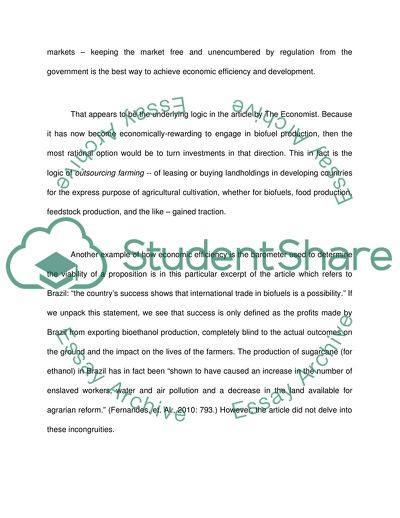Cite this document
(Bioethanol and Farmland Investment and the Neoclassical Paradigm of Economic Essay Example | Topics and Well Written Essays - 1250 words, n.d.)
Bioethanol and Farmland Investment and the Neoclassical Paradigm of Economic Essay Example | Topics and Well Written Essays - 1250 words. https://studentshare.org/agriculture/1756742-neo-classical-and-classical-perspectives
Bioethanol and Farmland Investment and the Neoclassical Paradigm of Economic Essay Example | Topics and Well Written Essays - 1250 words. https://studentshare.org/agriculture/1756742-neo-classical-and-classical-perspectives
(Bioethanol and Farmland Investment and the Neoclassical Paradigm of Economic Essay Example | Topics and Well Written Essays - 1250 Words)
Bioethanol and Farmland Investment and the Neoclassical Paradigm of Economic Essay Example | Topics and Well Written Essays - 1250 Words. https://studentshare.org/agriculture/1756742-neo-classical-and-classical-perspectives.
Bioethanol and Farmland Investment and the Neoclassical Paradigm of Economic Essay Example | Topics and Well Written Essays - 1250 Words. https://studentshare.org/agriculture/1756742-neo-classical-and-classical-perspectives.
“Bioethanol and Farmland Investment and the Neoclassical Paradigm of Economic Essay Example | Topics and Well Written Essays - 1250 Words”. https://studentshare.org/agriculture/1756742-neo-classical-and-classical-perspectives.


